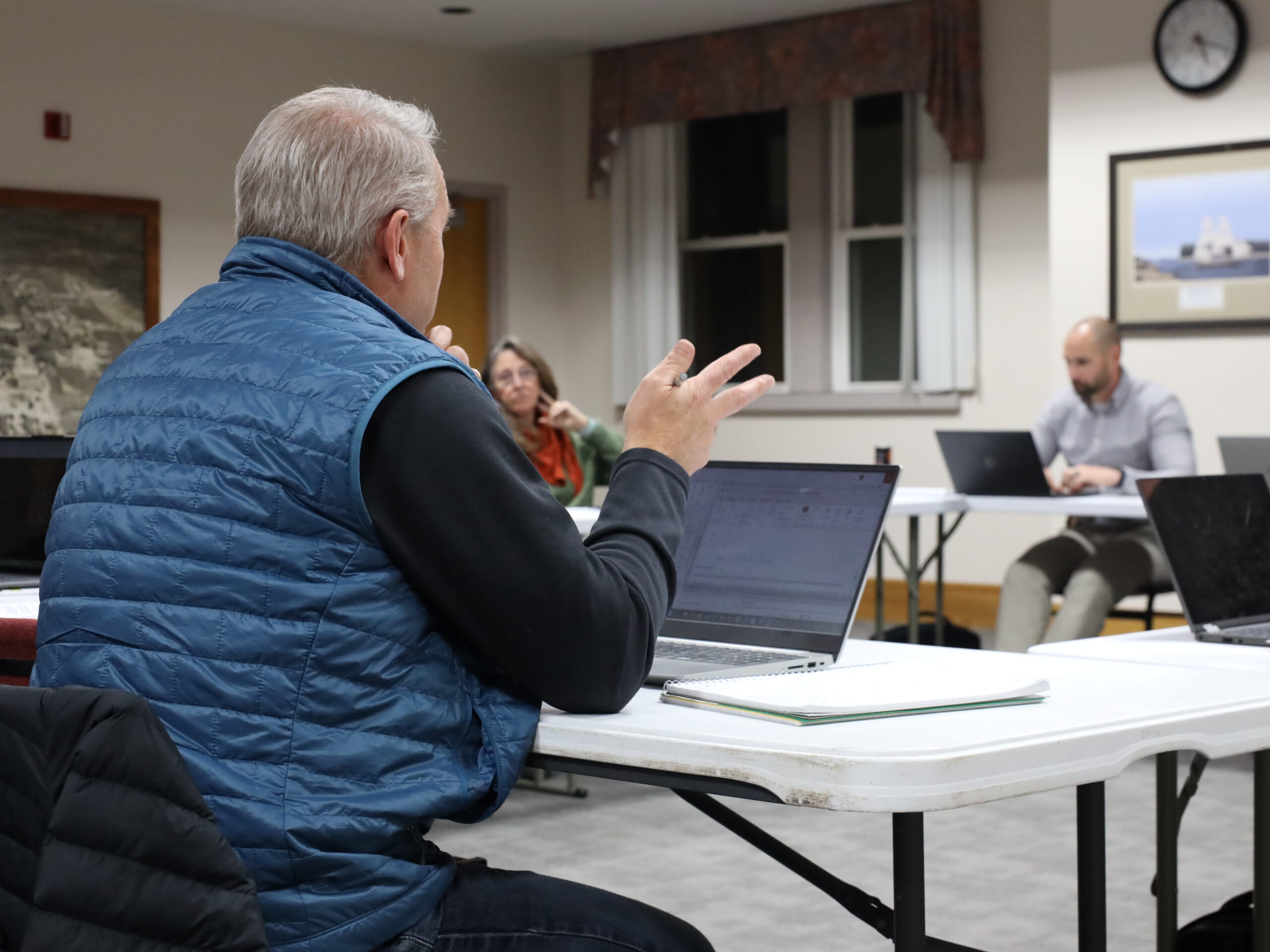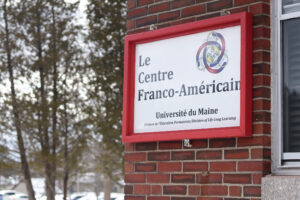The Orono Good Neighbor Committee appointed three additional University of Maine students to create a stronger discourse between college tenants in Orono and long-term residents.
Political science student Gracelyn Gebel already sits on the committee but was absent for this meeting. UMaine Student Government (UMSG) Greek Life Representative Peter Vehar, UMSG Town Council Liaison Joseph Elliot and Graduate Student Government (GSG) Representative Catherine Segada joined current committee members in tackling their first topic at a meeting on Nov. 13: the new Disorderly Property Ordinance, which took effect on Aug. 18.
While this ordinance previously existed in Orono, amendments were made to augment its impact. The ordinance seeks to prevent large disruptions in town that have the potential to lead to disturbances, property damage or injury.
The exact terms are still being revised within the committee. It currently imposes an initial $600 fine on residential properties that receive verified noise complaints as a result of parties with more than 20 people. However, $300 is the base fine for violations outside those parameters.
Responding Orono Police officers may choose to issue a warning if the issue is handled properly. However, multiple offenses can cause this fine to double continuously over time if the tenants choose not to abide by the rules.
The purpose of this Good Neighbor Committee meeting was to gauge the impact of the ordinance after having been implemented for nearly three months. Council Chair Dan Demeritt requested student feedback from the representatives.
Vehar, having spoken about the ordinance with about 40 other students, found that many of them were unaware of the property regulations. He added that some students do not read all of their emails, and therefore could have missed the message. Vehar suggested that the committee rely more on paper messaging because students may be more responsive to a physical notification regarding the ordinance.
Segada added that while there is no feedback from GSG, some commuter students who saw the signs found it overwhelming. However, many aware of the ordinance are sensitive to the situation that reinforced the need for increased neighborhood safety.
Last spring, an assault occurred wherein multiple UMaine students entered the property of married residents on Crosby Street in the middle of the night and attacked one of the husbands when confronted. The victim was punched, kicked and strangled, according to a firsthand account shared with Bangor Daily News.
While this incident was unprecedented, committee member Jodi Clayton noted that it was not the only time where safety concerns were brought to light.
“What happened last spring was a catalyst for this committee, it was not the sole engine for it,” said Clayton. “That was not the first time in our neighborhood alone where a property owner, resident, was physically attacked in the wake of a party.”
Quiet hours are from 10 p.m. to 7 a.m. in Orono. Residents are encouraged to call the police department’s 24-hour line for noise complaints at (207) 866-4000.
In terms of spreading the word about the updated ordinance, the committee reached out to the three major student housing complexes, local landlords, rental registration houses in town and students living on campus. It was noted that the fraternities are governed by university regulations as opposed to town laws, meaning they are outside the committee’s purview.
In consideration of the high turnover rate of student residents in Orono year to year, the committee hopes to cement a lasting relationship with temporary tenants in their college town, and to set a positive precedent for newcomers.
This year, the Orono Festival was held after the first week of classes as a way to welcome UMaine students, according to Demeritt. Segada suggested that council members attend the First-Friday Bagels event in the Wade Center on campus because of the high attendance rate each month. Councilors could introduce themselves, inform students about the ordinance and answer questions directly.
In terms of data since the ordinance went into effect, Orono Police Chief Daniel Merrill shared that there were a total of 30 noise complaints received by the department. Of these complaints, half turned out to be disorderly events documented by officers. The other half were not in violation of the ordinance.
The Disorderly 1 ordinance involves a fine of $600. Of the 15 recorded events that took place in the past three months, seven fines were issued. In the remaining incidents, the officers opted to issue a warning instead. So far, one fine payment has been made, with six in progress.
The committee has chosen to avoid a strictly black-and-white approach to the ordinance because different situations require different approaches. If there is an event just past 10 p.m. that technically violates the ordinance but the tenants are responsive and correct the issue immediately, officers may be inclined to issue a warning instead of a fine.
Vehar suggested issuing a warning after the initial complaint in consideration of those who may not be aware of the ordinance. He believes that letting the tenants know about the risk of being fined could be effective in itself.
“If they were given a written warning that contained all of this information, I’m sure the reoffense rate would be relatively low,” said Vehar.
Community Police Liaison Ed Leskey follows up in person with those issued fines or warnings to discuss the ordinance. He also reaches out to the corresponding landlords to ensure they are informed of the property violation as well. Of the 15 documented violations, the majority of tenants did not answer the door.
Committee members made it clear that the violation is for disorderly properties as opposed to disorderly people. The fines are assigned to households as opposed to each individual tenant. It can be split across multiple people but those who live there bear the burden of paying it somehow.
Upon receiving advice from UMSG Attorney Sean O’Mara, Elliot posed the question of whether or not the fee is affordable to college students, as doubling the original fine could add up quickly. According to Merrill, all violations thus far have been well past 10 p.m.
The Good Neighbor Committee will reconvene sometime in March or April and again in June or July. They plan to discuss a potential shift of quiet hours, putting a limit on total fees that were doubled multiple times and revisiting the 20-person limit. Those unable to attend in person can access the livestream via YouTube along with all other Orono public meetings.







